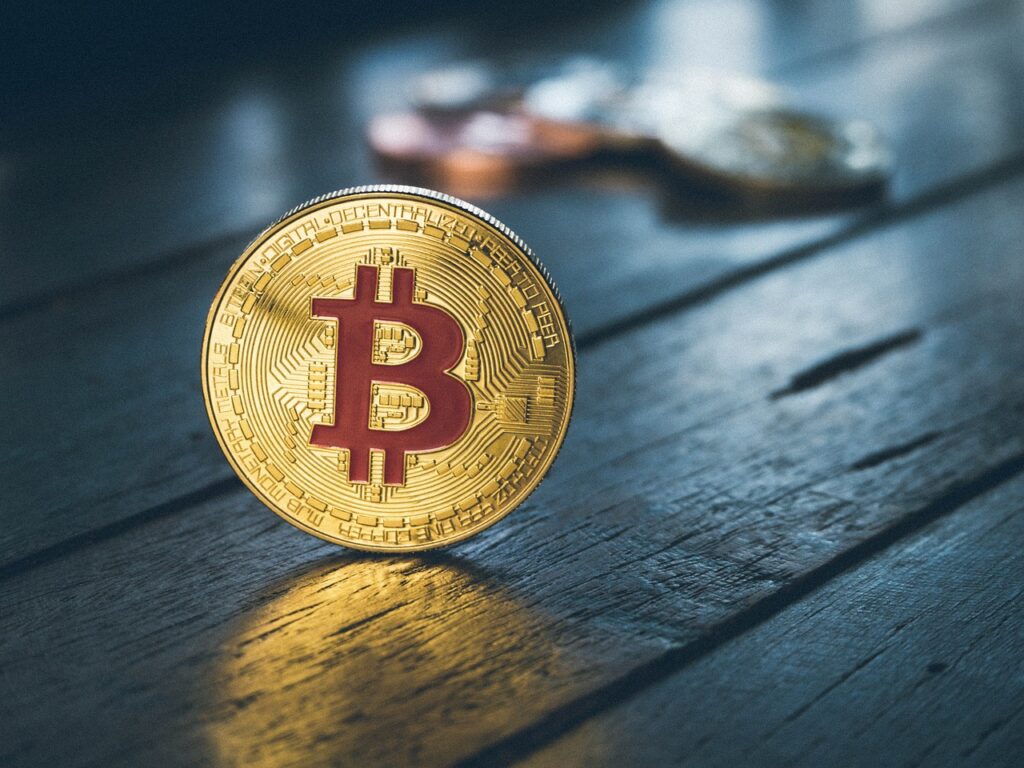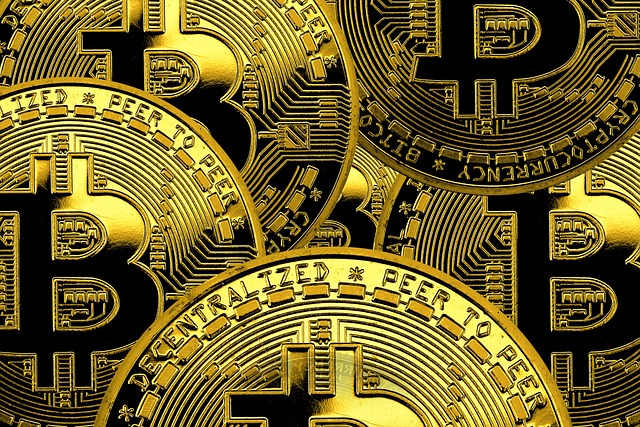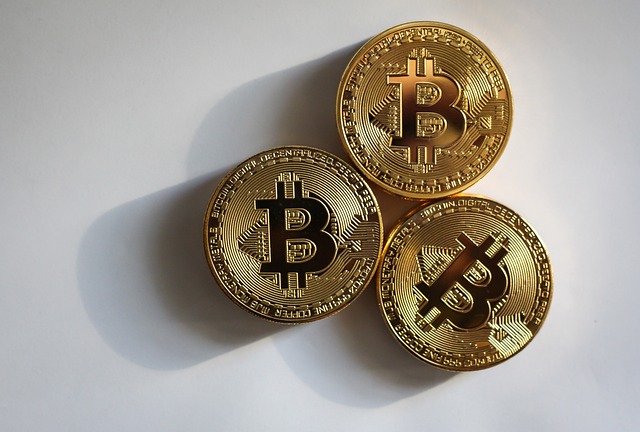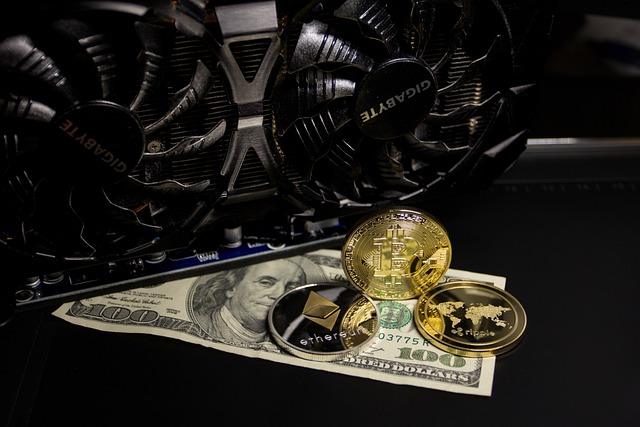Making Informed Choices: Decentralized Finance Pros and Cons
Making Informed Choices: Decentralized Finance Pros and Cons

Understanding Decentralized Finance: A Beginner’s Guide
Decentralized finance, also known as DeFi, is a rapidly growing trend in the world of finance. Put simply, it is a system that leverages blockchain technology to provide decentralized solutions for traditional financial activities. Unlike traditional finance, which is predominantly controlled by central authorities like banks, DeFi aims to eliminate middlemen and allow individuals to have more control over their financial transactions.
One of the key features of DeFi is that it is open to anyone with an internet connection, making it accessible to a global audience. This opens up a world of opportunities for individuals who may not have had access to traditional financial services before. With DeFi, individuals can participate in various financial activities such as lending, borrowing, or even trading cryptocurrencies, all from the comfort of their own homes. This democratization of finance empowers individuals and promotes financial inclusion on a global scale.
• Decentralized finance, or DeFi, is a growing trend in the financial world that leverages blockchain technology.
• DeFi aims to eliminate middlemen and give individuals more control over their financial transactions.
• Unlike traditional finance, which is controlled by central authorities like banks, DeFi is open to anyone with an internet connection.
• This accessibility allows individuals worldwide to participate in financial activities they may not have had access to before.
• With DeFi, people can lend, borrow, and trade cryptocurrencies from the comfort of their own homes.
• The democratization of finance through DeFi empowers individuals and promotes global financial inclusion.
The Advantages of Decentralized Finance: Empowering Individuals
Decentralized Finance, or DeFi, has emerged as a revolutionary concept that puts individuals in control of their own finances. By utilizing blockchain technology, DeFi eliminates the need for intermediaries such as banks or traditional financial institutions. This paradigm shift empowers individuals by providing them with complete ownership and control over their financial activities.
One of the key advantages of DeFi is its accessibility. Traditional financial systems often have complex and expensive processes that exclude a significant portion of the population from participating. However, DeFi allows anyone with an internet connection and a smartphone to access financial services and products. This inclusivity not only democratizes financial opportunities but also fosters financial independence. As a result, individuals who were previously excluded from the traditional financial system can now access loans, earn interest on their savings, invest in assets, and more. DeFi truly empowers individuals to take charge of their financial futures.
Exploring the Risks: Potential Pitfalls of Decentralized Finance
Despite the numerous benefits decentralized finance (DeFi) offers, it is essential to recognize the potential pitfalls that come along with it. One of the main concerns involves the security of DeFi platforms. As these platforms predominantly rely on smart contracts built on blockchain technology, any coding vulnerabilities or programming errors can leave users susceptible to hacking attacks and financial loss. This risk is further intensified by the fact that DeFi applications are typically decentralized, meaning there is no central authority to oversee or regulate transactions, leaving users solely responsible for managing and securing their own funds.
Another significant risk in decentralized finance is the prevalence of scams and fraudulent activities. The decentralized nature of DeFi platforms creates opportunities for bad actors to take advantage of unsuspecting individuals. With the absence of regulatory oversight, it becomes increasingly challenging to ensure the legitimacy of projects or the credibility of the participants involved. Consequently, investors and users must exercise caution and conduct thorough research before engaging with any DeFi platform to mitigate the risk of falling victim to fraudulent schemes.
How Decentralized Finance Promotes Financial Freedom
Decentralized finance, or DeFi for short, has emerged as a powerful tool for promoting financial freedom among individuals worldwide. By harnessing the power of blockchain technology, DeFi removes the need for intermediaries, such as banks or financial institutions, thereby enabling direct and seamless peer-to-peer transactions. This offers numerous advantages, including increased accessibility and lower transaction costs. With DeFi, individuals can access a wide range of financial services, including lending, borrowing, and investing, without relying on traditional gatekeepers or dealing with complex processes.
One of the key ways in which DeFi promotes financial freedom is by breaking down barriers and democratizing access to financial services. Unlike traditional finance, which often excludes people based on their socioeconomic status, DeFi allows anyone with an internet connection to participate. This means that individuals in underserved communities or developing countries can now access financial tools and services that were previously out of reach.

The Role of Blockchain Technology in Decentralized Finance
Blockchain technology plays a pivotal role in decentralized finance, revolutionizing the way financial transactions are conducted. At its core, blockchain is a distributed ledger that records and verifies transactions across a network of computers. This decentralized nature eliminates the need for intermediaries such as banks or financial institutions, allowing for direct peer-to-peer transactions. By replacing traditional intermediaries with code, blockchain technology ensures transparency, security, and immutability of financial transactions, creating a trustless environment where users have more control over their financial activities.
One of the key features of blockchain technology is its ability to create smart contracts. Smart contracts are self-executing agreements coded on the blockchain that automatically enforce the terms and conditions of a transaction. These digital contracts eliminate the need for third-party intermediaries, reducing delays and costs associated with manual processing. Moreover, smart contracts can be programmed to execute only when certain conditions are met, enhancing the efficiency and reliability of transactions. This feature of blockchain technology not only streamlines financial processes but also opens up new possibilities for innovative financial services, such as decentralized lending, insurance, and asset management.
Decentralized Finance vs Traditional Finance: A Comparative Analysis
Decentralized finance (DeFi) and traditional finance are two contrasting approaches to managing financial systems. While traditional finance relies on centralized authorities such as banks and government regulatory bodies, DeFi operates on a decentralized network utilizing blockchain technology. This fundamental difference has significant implications for various aspects of finance, including accessibility, transparency, and control.
The first notable difference between DeFi and traditional finance is the level of accessibility they offer. Traditional finance typically requires individuals to go through a lengthy and often cumbersome process to access financial services. This can involve extensive paperwork, in-person meetings, and strict eligibility criteria. In contrast, DeFi platforms aim to promote financial inclusion by enabling anyone with an internet connection to participate. This accessibility empowers individuals who might otherwise be excluded from traditional financial systems, particularly those in underserved regions or with limited resources.
Overcoming the Challenges: Building Trust in Decentralized Finance
Decentralized finance, also known as DeFi, has been gaining significant attention in recent years. It offers a promising alternative to traditional financial systems by allowing direct peer-to-peer transactions without the need for intermediaries. However, one of the key challenges faced by DeFi is building trust among its participants.
One of the main reasons trust is a challenge in decentralized finance is the absence of centralized authorities to regulate and oversee transactions. Unlike traditional financial systems, where banks and other institutions act as intermediaries, DeFi operates on smart contracts and blockchain technology, which rely on consensus mechanisms for validating transactions. While this decentralization offers numerous benefits, it also raises concerns about security and reliability. Without a central authority holding individuals accountable, there is a need to establish trust through transparency, community governance, and stringent security measures. Efforts are underway to build trust in DeFi by conducting audits of smart contracts, implementing decentralized governance models, and developing secure infrastructure to ensure the safety of users’ funds.
The Impact of Decentralized Finance on Global Economies
Decentralized finance, also known as DeFi, has rapidly emerged as a disruptive force in the global economy. It is transforming traditional financial systems and providing new avenues of financial inclusion and empowerment. By leveraging blockchain technology, DeFi is eliminating the need for intermediaries, such as banks and financial institutions, while offering individuals greater control over their financial assets and transactions.
One of the key impacts of decentralized finance on global economies is the democratization of access to financial services. In many parts of the world, individuals are excluded from traditional banking systems due to various reasons, such as lack of documentation or living in remote areas. DeFi has the potential to bridge this gap by providing easy access to financial services, such as lending, borrowing, and investing, through decentralized platforms. This has the potential to uplift millions of unbanked and underbanked individuals, enabling them to participate actively in the global economy and improve their financial well-being. Moreover, by reducing the reliance on traditional financial institutions, DeFi can foster greater financial resilience and stability, especially in times of economic uncertainty.
Exploring the Future of Decentralized Finance: Trends and Predictions
In the world of finance, decentralized finance (DeFi) is rapidly gaining traction and is expected to continue its upward trajectory in the future. As we look ahead, several trends and predictions can be made about the future of DeFi.
One trend that is likely to shape the future of DeFi is the continued development and adoption of blockchain technology. Blockchain has already proven its potential in revolutionizing various industries, and its role in DeFi is no different. With its ability to securely store and verify transactions without the need for intermediaries, blockchain technology provides a foundation for transparency and trust in DeFi ecosystems. As blockchain technology evolves and becomes more scalable, we can expect to see even greater innovation and expansion in the DeFi space.
Another prediction for the future of DeFi is the increasing integration with traditional financial systems. While DeFi has gained popularity as an alternative financial system, it is expected to increasingly bridge the gap between traditional finance and decentralized finance. As regulators and financial institutions recognize the potential of DeFi, we can anticipate the development of hybrid models that combine the strengths of both systems. This integration has the potential to bring DeFi into the mainstream, making it more accessible to a broader range of individuals and businesses.
As the future unfolds, it’s important to keep an eye on these trends and predictions in order to stay informed and make informed choices in the ever-evolving landscape of decentralized finance.
Navigating the Decentralized Finance Landscape: Tips for Making Informed Choices
Decentralized finance (DeFi) has emerged as a highly promising and rapidly growing sector within the blockchain industry. However, with so many projects and platforms available, navigating the DeFi landscape can feel overwhelming, particularly for beginners. To make informed choices, it is essential to understand the key tips that can help you navigate this dynamic landscape effectively.
First and foremost, it is crucial to conduct thorough research before diving into any DeFi project or platform. Look for information about the project’s goals, team, and technology behind it. Assess the project’s whitepaper, social media presence, and community engagement to gauge its credibility and potential. Additionally, explore the project’s security measures and whether it has undergone an external audit to minimize the risks associated with potential vulnerabilities. By taking the time to research and gather relevant information, you can make wiser decisions and increase the chances of success in the DeFi space.
What is decentralized finance?
Decentralized finance, also known as DeFi, is a financial system that operates on blockchain technology, removing the need for traditional intermediaries like banks. It empowers individuals by allowing them to access financial services and products in a decentralized and transparent manner.
What are the advantages of decentralized finance?
Decentralized finance offers several advantages, including empowering individuals to have full control over their finances, enabling access to financial services for the unbanked, and promoting global financial inclusion. It also eliminates the need for intermediaries, reduces transaction costs, and enhances the security and privacy of transactions.
What are the risks associated with decentralized finance?
While decentralized finance brings numerous benefits, it’s important to be aware of the risks involved. Some potential pitfalls include smart contract vulnerabilities, market volatility, and the lack of regulatory oversight. It’s essential to conduct thorough research and exercise caution when participating in DeFi projects.
How does decentralized finance promote financial freedom?
Decentralized finance empowers individuals by providing them with direct access to financial services without the need for intermediaries. It enables greater financial autonomy, allowing users to manage their assets, make investments, and access loans in a secure and transparent manner. This increased control over personal finances promotes financial freedom.
What role does blockchain technology play in decentralized finance?
Blockchain technology forms the foundation of decentralized finance. It enables the secure recording of financial transactions in a transparent and immutable manner. By utilizing smart contracts, blockchain ensures the execution of transactions without the need for intermediaries.

How does decentralized finance compare to traditional finance?
Decentralized finance differs from traditional finance in several ways. Traditional finance relies on intermediaries like banks, while DeFi operates on blockchain technology, eliminating the need for intermediaries. DeFi also offers greater accessibility, lower costs, and increased privacy compared to traditional finance. However, it comes with its own set of risks and challenges.
How can we build trust in decentralized finance?
Building trust in decentralized finance requires transparency, security, and community involvement. Projects should undergo thorough audits, communicate their protocols effectively, and prioritize the security of user funds. Additionally, community engagement and open discussions play a crucial role in fostering trust and ensuring the long-term success of decentralized finance.
What impact does decentralized finance have on global economies?
Decentralized finance has the potential to revolutionize global economies by promoting financial inclusion, especially in areas with limited access to traditional financial services. It can also disrupt traditional financial systems, challenge existing power structures, and provide alternative avenues for wealth creation and investment.
What does the future hold for decentralized finance?
The future of decentralized finance looks promising.

How can I make informed choices in the decentralized finance landscape?
To make informed choices in decentralized finance, it’s essential to conduct thorough research, understand the risks involved, and stay updated on the latest developments. It’s also advisable to diversify investments, start with small amounts, and seek guidance from experienced individuals or communities within the DeFi space. By staying informed and cautious, you can navigate the DeFi landscape more effectively.
Todays Featured Product:
Buy, exchange and grow your crypto securely with a Ledger hardware wallet, combined with the Ledger Live app. It’s never been easier to keep your crypto safe and accessible. Buy direct from Ledger.com and get todays Special Offers Here.




